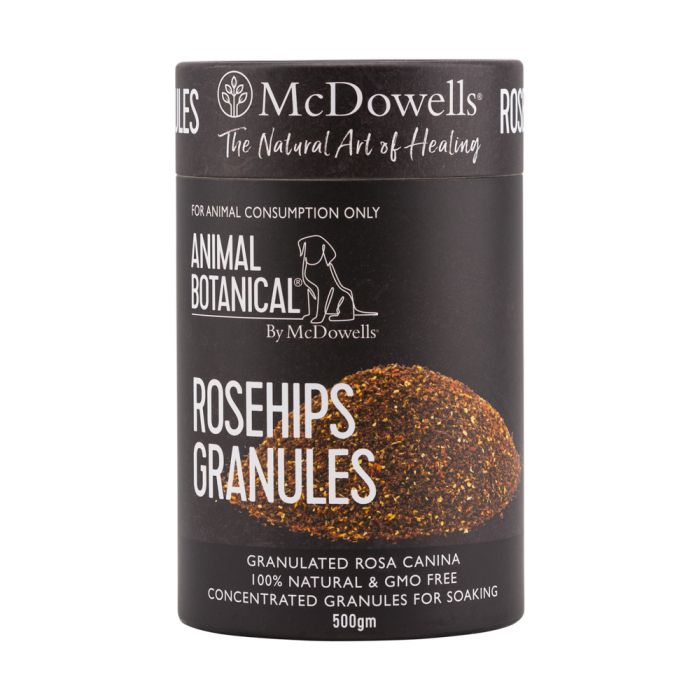
Rosehips for dogs
Product Information
Description
Botanical name: Rosa canina
During World War II, when imported fruits like oranges were becoming scarce in Europe, people turned to rosehips to make up the nutritional difference. People were urged to gather for personal use and to support the armed forces in combating illnesses like scurvy. The government established a nationwide week dedicated to gathering rosehips in 1941. For their labours, each forager received a thrupence per pound. 500 tonnes of oranges were harvested annually by 1943, which was sufficient to produce 2.5 million bottles of syrup and save the importation of 25 million oranges annually.
Historically, rosehip has been used to cure a variety of ailments, such as diabetes, bladder infections, and diarrhoea. Rosehips are used as a natural source of vitamin C and in teas, jams, jellies, and soups.
The dog rose's hips, or fruit, include easily absorbed types of minerals, vitamins, and other nutrients, such as calcium, magnesium, silica, phosphorus, copper, bioflavonoids (rutin included), carotenoids, and tannins.
Medicinal applications for fighting free radicals, boosting immunity, relieving pain, lowering blood pressure, promoting better digestion, and treating renal and bladder diseases are common.
Aperient (lightly laxative; promotes natural bowel function), astringent (constricts and tones mucous membranes and tissues), and anti-diarrheal are some of the actions.
Volume
How is it taken?
What's in it?
Disclaimer
FOR ANIMAL USE ONLY
